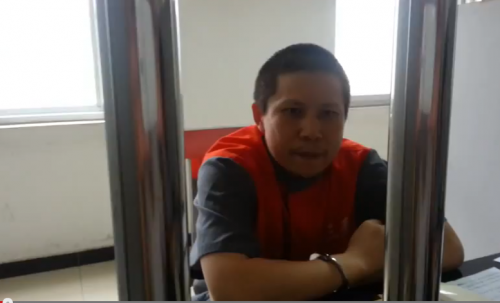Following reports that civil society activist and New Citizens’ Movement founder Xu Zhiyong may soon face trial, The New York Times’ Andrew Jacobs and Chris Buckley describe hopefulness among China’s rights advocates as Xi Jinping came to power, and the crackdown that has followed.
They were heartened when China’s new leader, Xi Jinping, came to power that November, vowing to stamp out corruption, promote judicial fairness and respect the Constitution, goals tantalizingly close to their own.
[…] The new leader’s promises about corruption and fairness were not the only signs that bolstered the movement’s resolve. Mr. Xi also downgraded the post of domestic security chief, suggesting to some that the police would have to pay more heed to legal restraints.
The party’s initially mild response to a protest over censorship at the Southern Weekend newspaper in early 2013 also fed expectations that the government would tolerate more concerted activism, said Chen Min [also known as Xiao Shu], a former editor at the paper.
[…] The Communist Party has partly endorsed some of the changes demanded by rights advocates, like ending re-education through labor, a form of imprisonment without trial. But behind the scenes, Mr. Chen and others said, the gatherings fed leaders’ fears that the growing clamor for reform could crystallize into a threat to the party’s authority. [Source]
Businessweek’s Dexter Roberts noted “Xi Jinping’s anticorruption paradox”:
This week the drumbeat of anti-corruption rhetoric has continued. While attending a three-day national meeting of the Party’s graft-busting agency, the Central Commission for Discipline Inspection, Xi warned that “corruption remains rampant on many fronts” and regulations to curb it must not become “paper tigers or scarecrows,” or ineffective, the official, English-language China Daily reported on Jan. 15.
[…] “When President Xi Jinping calls for a tough response to corruption it’s hailed as innovative policy, but when ordinary people say the same in public, his government regards it as subversion,” said Sophie Richardson, China director at Human Rights Watch in a June 9 news release. [Source]
I believe that the June 4 crackdown left a shadow of fear in people’s minds. And in recent years the authorities have taken forceful measures to ensure stability and intensified their crackdown on any organized defense of rights, creating fear in people’s minds about openly participating in actions to express discontent. For their part, the authorities are utterly terrified of any chance of social turmoil, and want to nip any signs of organized opposition movements in the bud. You can see this in how they insisted on bringing criminal charges against Xu Zhiyong, Wang Gongquan and other participants in the New Citizens Movement, ignoring the public pressure. [Source]
But as Jacobs and Buckley remark, Xu “is hardly a radical firebrand.” “For some reason,” law professor Donald Clarke wrote last August, “Xu’s detention seems to shout particularly loudly: What kind of government cannot tolerate even a person like this?”
Read more about Xu Zhiyong and the New Citizens’ Movement via CDT.








